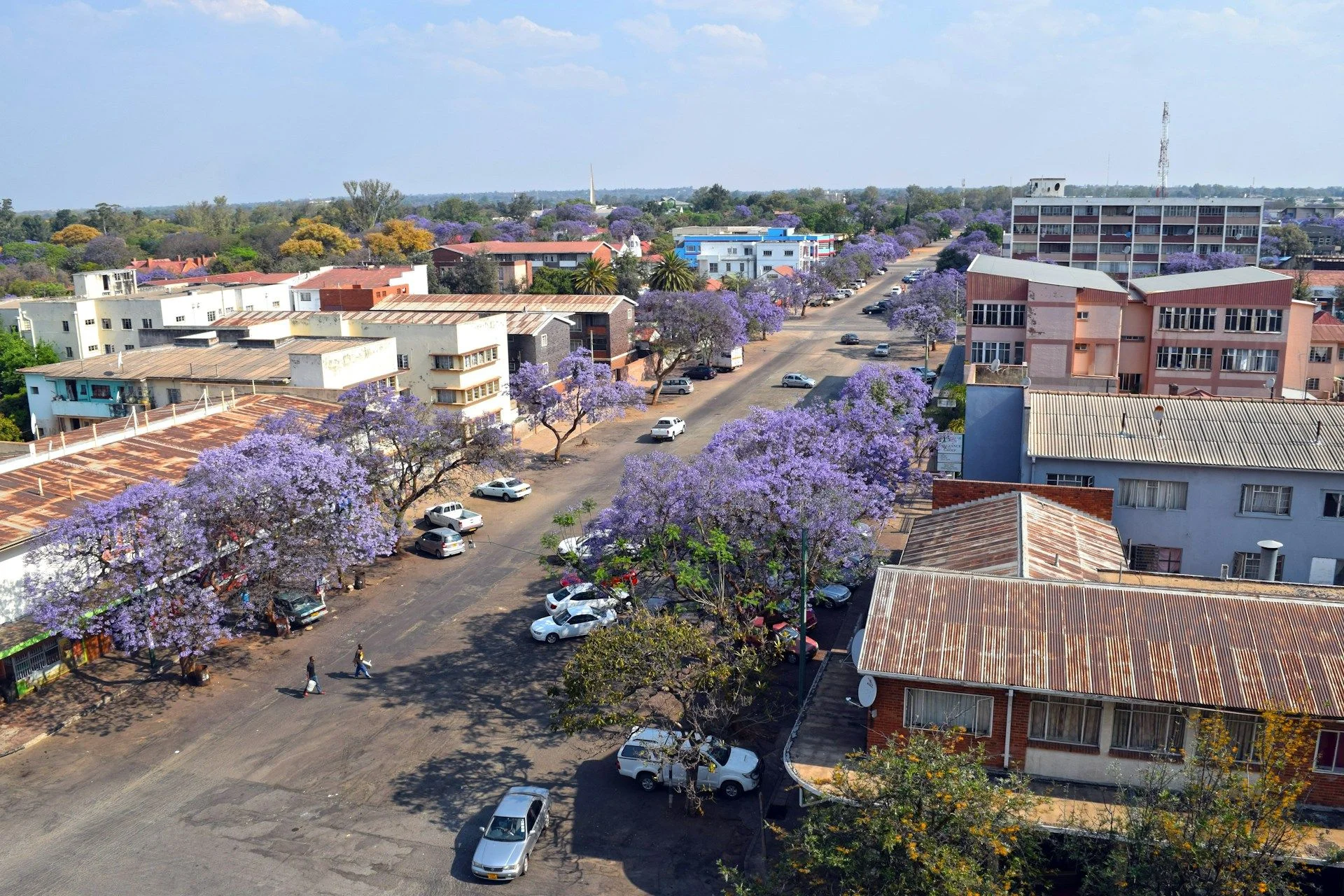Real estate in Bulawayo, ZimbabweHeritage city withquiet pace and strong identity

Best offers
in Bulawayo
Benefits of investment in
Zimbabwe real estate
Urban growth drives demand for new housing
Harare and Bulawayo continue to expand, creating opportunities for residential development and entry-level land acquisition.
Steady inflow of private capital from abroad
Zimbabweans living overseas invest in homes and plots, fueling gradual development and long-term property ownership.
Wide availability of undeveloped and rural land
Large plots remain accessible for those seeking long-term investment in nature-linked formats — from eco-projects to land banking.
Urban growth drives demand for new housing
Harare and Bulawayo continue to expand, creating opportunities for residential development and entry-level land acquisition.
Steady inflow of private capital from abroad
Zimbabweans living overseas invest in homes and plots, fueling gradual development and long-term property ownership.
Wide availability of undeveloped and rural land
Large plots remain accessible for those seeking long-term investment in nature-linked formats — from eco-projects to land banking.

Useful articles
and recommendations from experts
Real Estate in Bulawayo, Zimbabwe
Why Invest in Property in Bulawayo
Bulawayo, the second-largest city in Zimbabwe, serves as the industrial and cultural capital of the country’s southern region. Known for its wide streets, colonial architecture, and proximity to Matobo National Park, Bulawayo offers unique investment opportunities in a more affordable and less saturated market than Harare. With ongoing infrastructure improvements and increasing demand for both residential and commercial property, Bulawayo presents an appealing choice for real estate investors seeking long-term value in Southern Africa.
Types of Property in Bulawayo
The city features a variety of real estate asset classes:
- Residential houses — Detached homes in low- and medium-density neighborhoods such as Hillside, Khumalo, and Ilanda.
- Apartments and flats — Found mostly in central districts like the CBD and Suburbs.
- Commercial buildings — Retail outlets, office space, and hospitality properties in the city center and industrial districts.
- Industrial properties — Warehouses and manufacturing facilities in Belmont and Donnington areas.
- Land plots — For both urban development and speculative investment in the city’s outskirts.
Legal Framework and Foreign Ownership
Zimbabwe permits foreign property ownership with some limitations:
- Foreigners typically buy via registered local entities or joint ventures due to government regulations.
- Leasehold and freehold rights exist, depending on property category and location.
- Title verification is critical — Deeds should be thoroughly checked through the Deeds Registry and supported by legal professionals.
- Transfer of ownership requires legal contracts, tax clearance, and formal registration.
Property Prices and Market Insights
Bulawayo offers relatively low entry costs compared to Harare:
- 3-bedroom home (low-density suburb): $40,000 – $90,000
- Luxury home (Hillside, Burnside): $120,000 – $250,000
- City-center flat or townhouse: $25,000 – $50,000
- Retail or office space (CBD): $700 – $1,200 per sq. meter
- Urban land plots (500–800 sqm): $5,000 – $15,000
Rental Demand and Yield Potential
Bulawayo’s rental market is supported by:
- Local professionals and families — Seeking stable rentals in serviced areas.
- NGOs and civil society organizations — Leasing commercial and residential units for staff and operations.
- Industrial workers and small business owners — Requiring proximity to industrial zones and logistics hubs.
- 2-bedroom apartment (central): $200 – $350/month
- 3-bedroom suburban home: $400 – $700/month
- Retail shop in CBD: $10 – $15 per sq. meter/month
Best Areas to Invest in Bulawayo
Top-performing neighborhoods include:
- Hillside and Burnside — Known for spacious homes, green space, and high demand from NGOs and expats.
- Khumalo and Ilanda — Middle-class suburbs with schools, supermarkets, and good security.
- CBD and Suburbs — Offers office buildings, apartment blocks, and retail space with consistent foot traffic.
- Belmont and Donnington — Industrial zones ideal for warehousing and light manufacturing investment.
- Nkulumane and Cowdray Park — Affordable housing projects and rental demand from working-class tenants.
Real Estate Acquisition Process and Costs
Standard procedure in Bulawayo includes:
- Property search — Through agents, newspapers, or government auctions.
- Deed verification — Legal due diligence to confirm ownership and zoning.
- Sale agreement — Outlines payment, occupancy terms, and legal responsibility.
- Tax clearance and municipal approvals — Required prior to transfer.
- Title registration — Done through the Deeds Registry post-payment and documentation.
- Legal fees: ~1.5% – 2.5% of property value
- Transfer tax: 4% of market value
- Stamp duty and registry costs: ~0.5% – 1%
Who Should Invest in Bulawayo
This market is ideal for:
- Diaspora Zimbabweans — Returning or seeking long-term income through rentals.
- Buy-to-let investors — Targeting mid-income or industrial tenants.
- NGO housing providers — Offering secure, furnished homes to international staff.
- Commercial developers — Focused on logistics, office parks, or light industrial zones.
Conclusion
Bulawayo presents a stable, undervalued market for real estate investors seeking solid yields and strategic positioning in Southern Zimbabwe. With improving services, affordable prices, and steady demand from the NGO and diaspora communities, Bulawayo continues to evolve as a second-tier urban opportunity. Investors willing to conduct due diligence and partner locally can capitalize on both income and capital appreciation across residential, commercial, and industrial segments.
